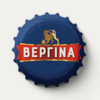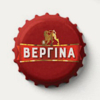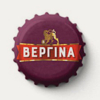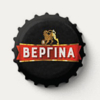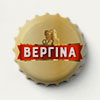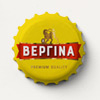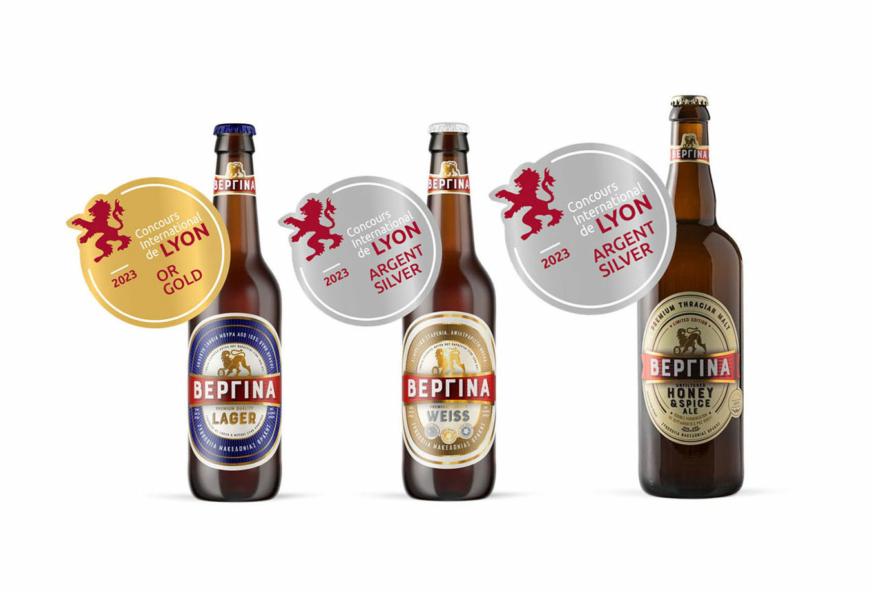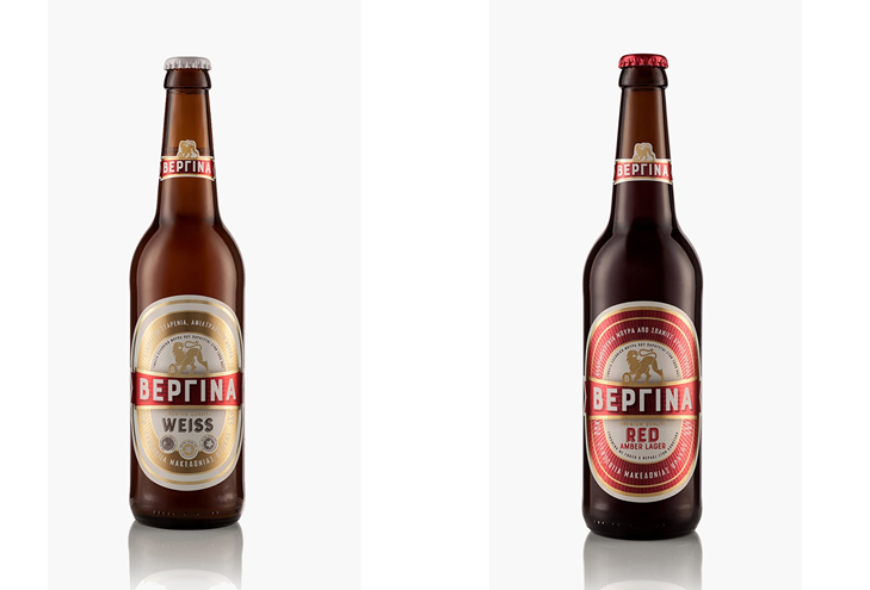Vergina: A Beer “speaking” Greek (16/06/2009)
The founder of Macedonian Thrace Brewery, Dimitris Politopoulos, has been counting 11 years in the Greek beer market. At the age of 46, he feels that his dream of having his own beer production in Greece has been partially implemented, despite the adversity and the war of the market's strong, choking local producers, he says.
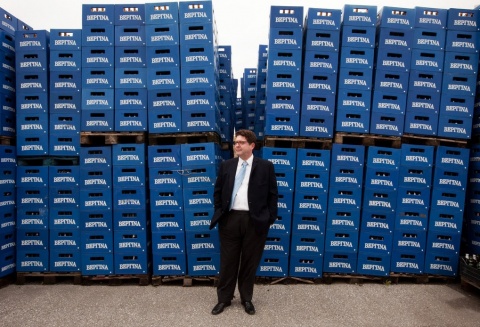
Dimitris Politopoulos was born in Papagos, Athens and when he finished high school he went to the USA. He completed his studies at the Stevens Institute of Technology as a chemical engineer. In New Jersey he operates together with his brother, a heavy chemical organic factory, where he produces raw materials for 25 products. “My brother, Michalis, is still in the US and has the responsibility of the factory which goes very well,” he describes. “I wanted to return home and create in Greece. In a conversation we had with my brother, we found that Greece does not have its own beer. This was the challenge for me, to return home and create the first Greek beer to be produced from Greek barley and have a Greek name, “he says. He completed his brewery training course at the Siebel Institute of Technology in Chicago and in 1996 prepares to return to Greece.
“It was absurd that there was no Greek beer and that was the challenge to come back to Greece,” he says. He commissions an American company to conduct a market survey on the location and size of the brewery. The company proposed Crete and Komotini as the option of installing the factory, while for the factory it proposes the possibility of production of 100,000 hectoliters with a prospect of expansion to 200,000 hectoliters. In the end, the Industrial Area of Komotini is chosen as the venue for Dimitris Politopoulos’ dream to create the first pure Greek brewery, mainly for the good water quality of the area and the privileges provided by the development law. Dimitris Politopoulos instructed AMS from Hamburg to build the project at the Industrial Area of Komotini and deliver it to the brewery that used state-of-the-art equipment within 9 months. So in February 2008 the first beer “Vergina” was sold.
The “conflict” with the Athenian brewery
“We had achieved our goal of creating the first Greek beer,” he says proudly. Then the first difficulties begin. “We knew that the audience would be hesitant to address the first beer with Greek letters on its label and we are prepared for it. We were not prepared for the war we accepted in the competition” says Dimitris Politopoulos. “Athenian Brewery used its dominant position in the market to create problems for our products distribution. Distributors of the ‘cold’ market did not distribute the Vergina beer because, as we were told, it was forbidden by the Athenian Brewery «he underlines. “We were forced to become” inventors “in marketing to survive” says Dimitris Politopoulos. The company offered a barrage of bids to keep Vergina beer on the market. The company Brands VERGINA Premium Lager, VERGINA Red, VERGINA Weiss and EDELSTEINER managed under adverse conditions to occupy 3.5% of the market. “The Athenian Brewery war made us more flexible in dealing with these unfavorable situations. We produce a quality Greek beer and we could not promote it in the market, which we have not managed to cover all over the country. The price we offered the VERGINA beer was the half price of our competitors’ products. We encountered tremendous difficulties, like inaccessible walls that rise before us” says Dimitris Politopoulos. In 2001 Macedonia’s Thrace Brewery undertakes the production of the beer of PAOK and the next year the production of the Thira 13 beer of Panathinaikos. In the same year, VERGINA is sold to all-inclusive hotels in a barrel since the company offers it at a competitive price. “We have not been able to withstand competition since other companies have managed to sell their products at lower prices than VERGINA. Besides, in addition to healthy competition the winner should not always be the consumer? ” he says meaningfully.
Justification
Dimitris Politopoulos feels vindicated as he says, since after the VERGINA beer, other Greek brewers came to the market and found a good friend who would gladly give them his opinion on the founder of Macedonia’s Thrace Brewery. “We know that things are moving slowly in Greece but I believe that in some years we will have the opportunity to enjoy many different Greek beers. Bulgaria has eighteen of its own, Albania has four, Mexico 500, US 3000, England 800, Germany 1400, Zimbabwe has its own, Palestine, Turkey. Especially a country like Greece that has a reputation for alcoholic fermentation products, which is wine and beer, and distillation such as tsipouro. We have reputation, we have 3500 wine labels, 500 ouzo marks, but we did not have a beer, perhaps because no one thought it or was so disturbing about the environment around what prevented anyone thinking about creating it. So obviously we knew it would be a difficult task, but one had to undertake and do it. There can be no nation without its own beer. Especially the one that invented it ” he underlines referring to the historical assumption that the first beer of antiquity was produced in Sapes, in Komotini, on the rule of Ural, when the area was the Athenian ceremony.
Regarding the Greek character of the products on the domestic market, Dimitris Politopoulos is clear: “The Amstel signs are the local brand of Amsterdam that crosses the homonymous river. They never say Greek beer. The branch of the Dutch company Heineken, which is the surname of the owners in Greece, is called “Athenian Brewery”. Never in the history of the Greek nation, Greeks did not produce beer with a Greek name. Always involved in efforts of foreigners, and the famous Greek FIX came with King Othonas and the Bavarians who came with him. Their brewer was called Fix, and he was the Bavarian brewmaster. No Greek ever did what we do to get a piece of land, build a state-of-the-art brewery and produce beer with a Greek name and Greek letters on the label. ”
The Competition Commission’s finding
The Managing Director of Macedonia’s Thrace Brewery explains his view on the expected outcome of the Competition Commission for the domestic beer market: “We respect the principles of our country and wait for their outcome. I have never lodged a complaint with the Greek Competition Commission. In 2003 I informed the Commissioner responsible in Brussels of the situation in the Greek beer market. Since then, in 2005, the Competition Commission has started investigations. We have total trust in the principles of our country and the EU. Two years ago, the European Competition Commission announced a fine of 217 million euro to Netherlands’ Heineken for practices similar to those followed in the Greek market by the Athenian Brewery. We are waiting for authorities’ research, which is a time consuming process, to liberalize the market in Greece and to repair a chronic problem” he concludes.
Source: www.capital.gr

